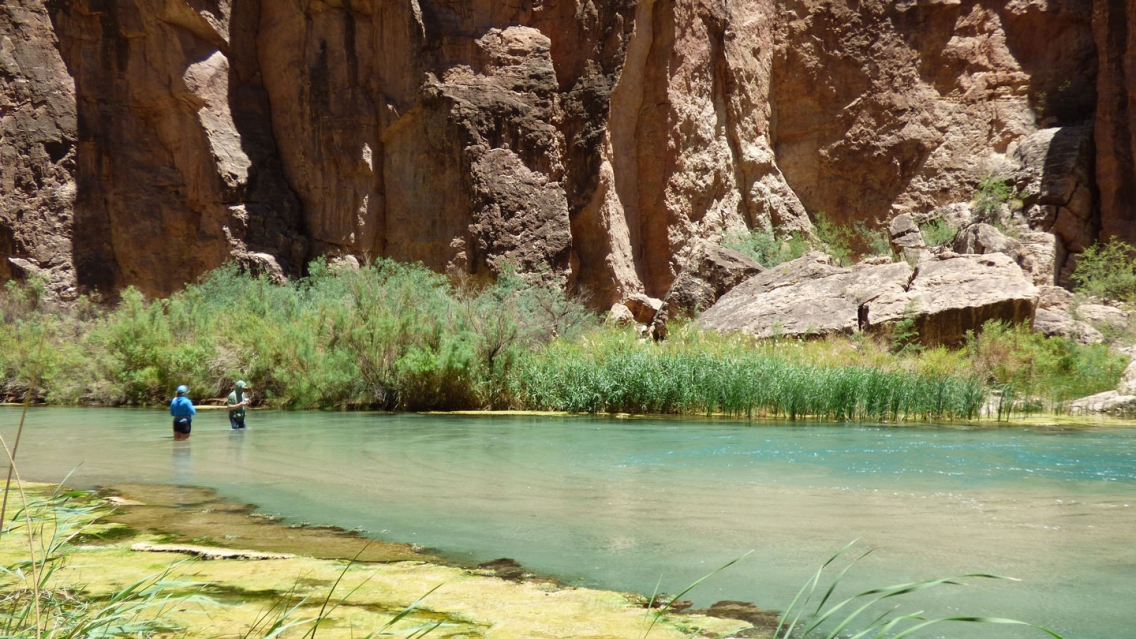Off-Campus Study
Study abroad can augment a biology student’s studies at Middlebury College.

Some study abroad programs provide experiences in areas like ecology, where studying different habitats is important, or animal or plant biology, where the fauna and flora of a particular area can be distinctive. Other programs can cover material or teach techniques that are important to a student’s specific track within the biology major, such as in areas of biotechnology or primate biology. Finally, others have unique relationships to Middlebury that make them effective in integrating their study programs to our students, like the biology program at the Universite de Poitiers in cellular/molecular studies or the University of Lancaster for health professions studies.
The decision to study abroad and where to go must be made with consultation between the students seeking to go abroad and their academic advisors. Students are required to discuss their options with their advisor before approval. You should also consult the Off-Campus Study Office course information database prior to meeting with your advisor.
Guidelines
As you plan your potential program, first be advised that to get credit in a specific Middlebury department, e.g., biology or earth and climate sciences, you must get prior approval from that department.
There are two kinds of course credits at Middlebury. There are “graduation credits” that count toward the 34 needed to graduate, and there are department explicit credits that can be used for your major, minor, distribution, or other requirements. If you choose to study abroad you will need to address both of these issues. Consultation with your academic advisor is essential, and no study abroad program will be approved without this consultation.
For biology courses in particular, depending upon the program, you may receive College credit but not necessarily biology credit for a course labeled biology. For example some courses on health or sports science would likely not be acceptable for biology credit. In other programs, while the focus could be primarily on biology, only some courses might qualify to be transferred for biology credit at Middlebury. For example, in some off-campus programs, e.g., School for International Training, you will receive 4 “graduation credits”, but possibly 0, 1, or 2 biology credits.
Whichever program you choose, consider the following:
- We generally recommend that students study for one semester, unless a compelling argument can be made for a two-semester program, and the policies listed above are not violated.
- All biology “core courses” must be taken at Middlebury. These include BIOL 0140, BIOL 0145, and at least one of the two “organismal” courses required of the major. Students seeking to go abroad should therefore choose courses at the intermediate level (sophomore/junior) for which our core courses would serve as potential prerequisites. These courses traditionally have prerequisites and labs. Individual courses will be approved in consultation with an advisor. Also, do not take a course, such as Animal Behavior or Microbiology off campus if you also want to take that course at Middlebury.
- A maximum of three courses taken off campus (including study abroad and other off-campus programs like the Marine Biological Program at Woods Hole, and the Center for Northern Studies) can be counted toward biology or joint majors.
- We do not accept Independent Study credits for biology credit since these are research projects without our input or control.
- Students are ultimately responsible for their graduation and major requirements. Our department cannot guarantee that specific courses will be available when students return that were available while they were abroad due to faculty leaves, or other issues.
- Advisors must approve a program for study abroad in advance, and students must bring back their course syllabi and exams for review prior to final approval for credit. Ultimately, study abroad is a student’s choice, and it is their responsibility to insure that they have the necessary courses for graduation and to prepare them for any independent study or research they might undertake when they return.
